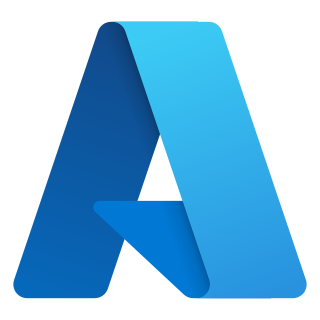Related Research Articles
dpkg is the software at the base of the package management system in the free operating system Debian and its numerous derivatives. dpkg is used to install, remove, and provide information about .deb packages.

The Linux Foundation (LF) is a non-profit technology consortium founded in 2000 as a merger between Open Source Development Labs and the Free Standards Group. Its primary objectives are to standardize Linux, support its growth, and promote its commercial adoption. Additionally, it hosts and promotes the collaborative development of open source software projects.
Azure DevOps Server is a Microsoft product that provides version control, reporting, requirements management, project management, automated builds, testing and release management capabilities. It covers the entire application lifecycle and enables DevOps capabilities. Azure DevOps can be used as a back-end to numerous integrated development environments (IDEs) but is tailored for Microsoft Visual Studio and Eclipse on all platforms.
Visual Studio is an integrated development environment (IDE) from Microsoft. It is used to develop computer programs including websites, web apps, web services and mobile apps. Visual Studio uses Microsoft software development platforms such as Windows API, Windows Forms, Windows Presentation Foundation, Windows Store and Microsoft Silverlight. It can produce both native code and managed code.
Microsoft Azure Dev Tools for Teaching or simply Azure Dev Tools for Teaching is a Microsoft program to provide students with Microsoft software design, Microsoft developer tools, Cloud Computing Access and learning resources. The program is available for university/college and K-12 students Azure for Student and Azure Dev Tools for teaching are available in more than 140 countries.
SVNBridge is an extension for Microsoft Azure DevOps Server that allows the use of a Subversion client with Azure DevOps Server. SVNBridge is available free under the Microsoft Public License (Ms-PL).

Microsoft Azure, often referred to as Azure, is a cloud computing platform run by Microsoft, which offers access, management, and development of applications and services through global data centers. It provides a range of capabilities, including software as a service (SaaS), platform as a service (PaaS), and infrastructure as a service (IaaS). Microsoft Azure supports many programming languages, tools, and frameworks, including Microsoft-specific and third-party software and systems.
Progress Chef is a configuration management tool written in Ruby and Erlang. It uses a pure-Ruby, domain-specific language (DSL) for writing system configuration "recipes". Chef is used to streamline the task of configuring and maintaining a company's servers, and can integrate with cloud-based platforms such as Amazon EC2, Google Cloud Platform, Oracle Cloud, OpenStack, IBM Cloud, Microsoft Azure, and Rackspace to automatically provision and configure new machines. Chef contains solutions for both small and large scale systems.

OpenShift is a family of containerization software products developed by Red Hat. Its flagship product is the OpenShift Container Platform — a hybrid cloud platform as a service built around Linux containers orchestrated and managed by Kubernetes on a foundation of Red Hat Enterprise Linux. The family's other products provide this platform through different environments: OKD serves as the community-driven upstream, Several deployment methods are available including self-managed, cloud native under ROSA, ARO and RHOIC on AWS, Azure, and IBM Cloud respectively, OpenShift Online as software as a service, and OpenShift Dedicated as a managed service.

Microsoft Build is an annual conference event held by Microsoft, aimed at software engineers and web developers using Windows, Microsoft Azure and other Microsoft technologies. First held in 2011, it serves as a successor for Microsoft's previous developer events, the Professional Developers Conference and MIX. The attendee price was (US)$2,195 in 2016, up from $2,095 in 2015. It sold out quickly, within one minute of the registration site opening in 2016.

Gatling is an open-source load- and performance-testing framework based on Scala, Akka and Netty. The first stable release was published on January 13, 2012. In 2015, Gatling's founder, Stéphane Landelle, created a company, dedicated to the development of the open-source project. According to Gatling Corp's official blog, Gatling was downloaded more than 1,000,000 times (2021). In June 2016, Gatling officially presented Gatling FrontLine, Gatling's Enterprise Version with additional features.
Docker is a set of platform as a service (PaaS) products that use OS-level virtualization to deliver software in packages called containers. The service has both free and premium tiers. The software that hosts the containers is called Docker Engine. It was first started in 2013 and is developed by Docker, Inc.

Visual Studio Code, also commonly referred to as VS Code, is a source-code editor made by Microsoft with the Electron Framework, for Windows, Linux and macOS. Features include support for debugging, syntax highlighting, intelligent code completion, snippets, code refactoring, and embedded Git. Users can change the theme, keyboard shortcuts, preferences, and install extensions that add functionality.

DevConf.cz is an annual, free, Red Hat sponsored community conference for developers, admins, DevOps engineers, testers, documentation writers and other contributors to open source technologies. The conference includes topics on Linux, Middleware, Virtualization, Storage and Cloud. At DevConf.cz, FLOSS communities sync, share, and hack on upstream projects together in the city of Brno, Czech Republic.

Tricentis is a software testing company founded in 2007 and headquartered in Austin, Texas. It provides software testing automation and software quality assurance products for enterprise software.
Continuous configuration automation (CCA) is the methodology or process of automating the deployment and configuration of settings and software for both physical and virtual data center equipment.
Buddy is a web-based and self-hosted continuous integration and delivery software for Git developers that can be used to build, test and deploy web sites and applications with code from GitHub, Bitbucket and GitLab. It employs Docker containers with pre-installed languages and frameworks for builds, alongside DevOps, monitoring and notification actions.

Katalon Platform is an automation testing software tool developed by Katalon, Inc. The software is built on top of the open-source automation frameworks Selenium, Appium with a specialized IDE interface for web, API, mobile and desktop application testing. Its initial release for internal use was in January 2015. Its first public release was in September 2016. In 2018, the software acquired 9% of market penetration for UI test automation, according to The State of Testing 2018 Report by SmartBear.
Microsoft, a technology company historically known for its opposition to the open source software paradigm, turned to embrace the approach in the 2010s. From the 1970s through 2000s under CEOs Bill Gates and Steve Ballmer, Microsoft viewed the community creation and sharing of communal code, later to be known as free and open source software, as a threat to its business, and both executives spoke negatively against it. In the 2010s, as the industry turned towards cloud, embedded, and mobile computing—technologies powered by open source advances—CEO Satya Nadella led Microsoft towards open source adoption although Microsoft's traditional Windows business continued to grow throughout this period generating revenues of 26.8 billion in the third quarter of 2018, while Microsoft's Azure cloud revenues nearly doubled.
References
- ↑ Weinberger, Matt (25 November 2014), Microsoft study finds everybody wants DevOps but Culture is a Challenge, Computerworld
- ↑ "Microsoft announces open source blockchain-based identity platform for Azure". v3.co.uk. Retrieved 2016-06-06.
- ↑ Wright, Jonathon. "WinOps - Continuous Delivery with Azure" . Retrieved 2018-08-01.
- ↑ Digital, Prism (2015-10-16). "Prism Digital's world first conference". Medium. Retrieved 2016-06-06.
- ↑ "WinOps Conference London #2". Sam Martin. 2016-05-26. Retrieved 2016-06-06.
- ↑ "WinOps Conf 2016 - DevOps-ification of Windows Server - Skelton Thatcher Consulting". Skelton Thatcher Consulting. 2016-05-28. Retrieved 2016-06-06.
- ↑ Digital, Prism (2016-06-01). "WinOps Conf". Medium. Retrieved 2016-06-06.
- ↑ Eagles, Harry (24 May 2016). "DevOps Technology in a Windows World". Microsoft TechNet.
- ↑ Thair, Steve (24 March 2015), DevOps for Windows "In the Wild", DevOps Exchange London, London